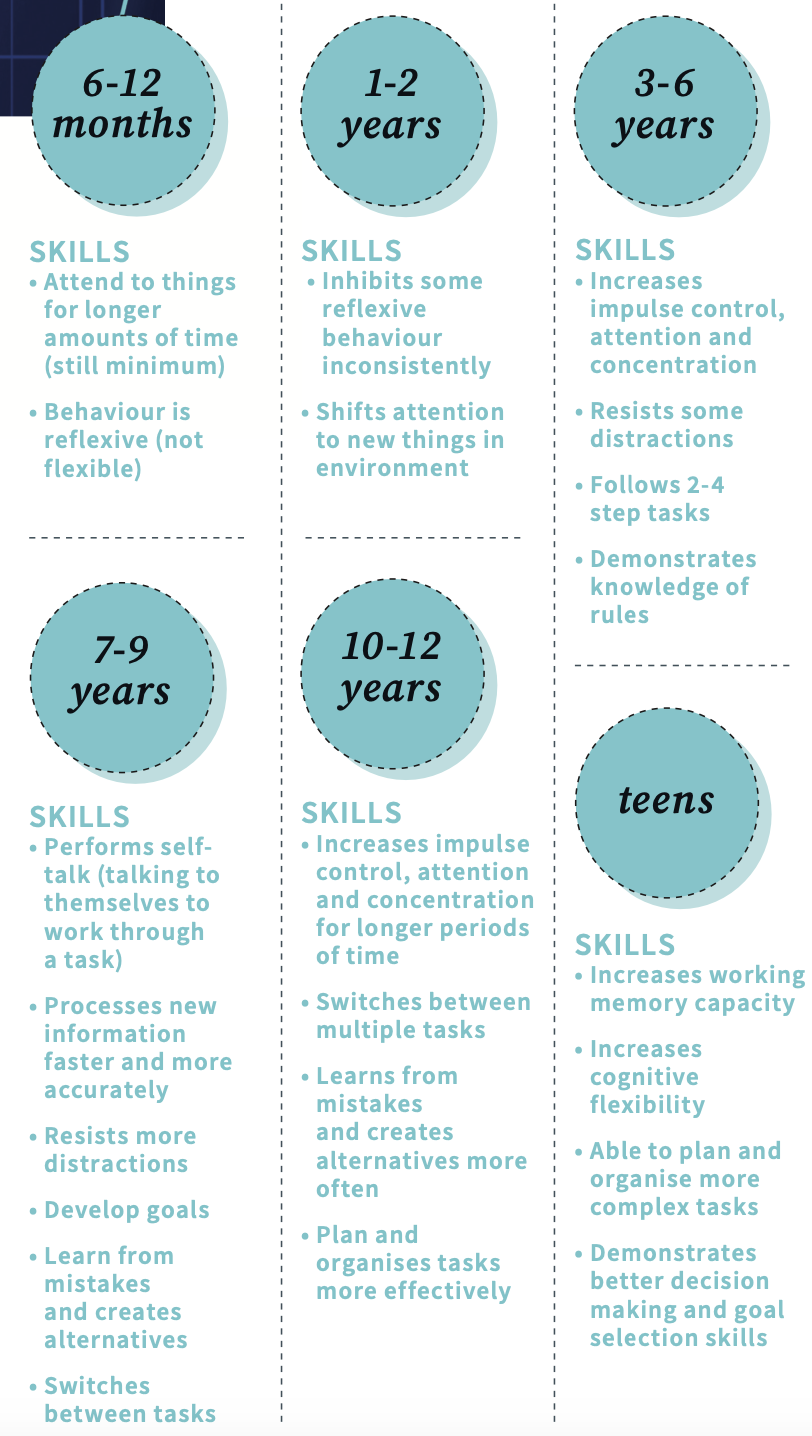
An OT explains: All about executive functioning
By Lisa Hughes, Occupational Therapy Helping Children
Executive functions are known as a set of higher cognitive processes essential for the cognitive control of various behaviours. It is the mental process that enables us to plan, focus, organise and complete multiple tasks successfully at once.
The following analogy sums up Executive Functioning perfectly! Think about the air traffic controllers at an airport.
They safely manage both the arrivals and departures of countless aircrafts on several runways, which in turn is similar to how our brain works when needing to filter out distractions, prioritise tasks, achieve goals and self-regulate when impulses occur.
From childhood, we make around 35,000 decisions a day, using different combinations of executive strategies which are needed for the task and/or situation. For each one of those decisions, we require the executive functioning skills to perceive, be aware of the task that needs to be done, then do something to accomplish it, and constantly assess if we are doing it effectively.
THE EIGHT EXECUTIVE FUNCTIONING SKILLS
1. Impulse Control/Inhibit: Not acting on an impulse or stopping one’s inappropriate behaviour at a given time
2. Emotional Control: Modulating and controlling one’s emotional response appropriate to the situation or stressor
3. Flexible Thinking: Allows a child to respond appropriately to an unexpected change of events
4. Working Memory: Holding information in mind to complete a specific and related task
5. Self-Monitoring: The skill involved in evaluating one’s work
6. Planning and Sequencing: Anticipating future events, setting goals, and developing the appropriate steps ahead of time to carry out the activity
7. Task Initiation: Allows us to act and get started on tasks
8. Organisation: Allows your child to keep on track of effectively and efficiently achieving the desired outcome
EXECUTIVE FUNCTIONING MILESTONES
Different from other milestones, executive functioning skills don’t have a concrete developmental scale as they vary for individuals of all ages. However, most executive functions seem to reach a plateau of maturity at about 12 years of age. After that, the skills already developed become more sophisticated with time.
See the table below with an approximate age development of executive functions skills:


OBSERVING EXECUTIVE FUNCTIONING DIFFICULTIES IN CHILDREN
Considering the above milestones, there are some common observations which may indicate that a child is experiencing executive functioning difficulties. For preschool aged children, this can include giving up when things go wrong, forgetting what comes next or looking ‘frozen’ and unable to initiate the next task. For primary school aged children, this could be having trouble shifting between two activities, trouble getting organised, rigid thinking of seeming to miss the point. For high school aged children, this could look like difficulties making social plans, procrastinating, overreacting or being surprised by failure.
QUICK TIPS TO SUPPORT EXECUTIVE FUNCTIONING IN CHILDREN
If you want to kick start your child’s executive functioning journey at home, here’s a list of strategies to assist you in the process:
- Establish routines to consolidate skills and memory of what needs to be done.
- Improve the working environment by decluttering their workplace and limiting distractions.
- Use calendars to keep track of specific dates and events, e.g., chores, activities, assignments.
- Create a family “to do” list.
- Make a visual schedule for specific routines of the day, e.g. morning routine, afternoon and night.
- Use aides, such as timers and alarms to keep track of time.
- Incorporate a multisensory approach to learning and following instructions – this could be written, visual or oral.
Lisa Hughes is director of Occupational Therapy Helping Children, a team of OTs in Sydney’s Frenchs Forrest dedicated to helping children thrive; offering one-on-one supports, as well as parent workshops and teacher training sessions. occupationaltherapy.com.a






